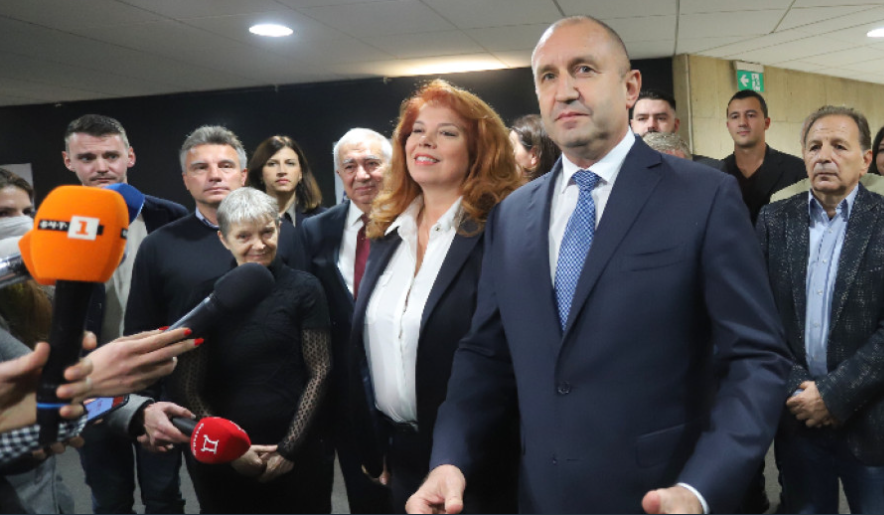Bulgarian President Rumen Radev appears to have been re-elected to the post by a significant margin, according to several forecasts.
He can expect more than 65 per cent of the vote, while his challenger Anastas Gerdzhikov won around 33 per cent on Sunday, according to the forecasts.
Official final results were not expected on the night of the election, but Gerdzhikov conceded defeat.
Bulgaria is now on the path of “development, freedom and modernization,” Radev said.
After the early parliamentary elections a week ago, he said society expected “a clear political majority” to press on with immediate judicial reforms.
Radev vowed he would prevent a social or economic crisis this winter.
Several key areas require attention in Bulgaria from tackling corruption, containing the pandemic and the EU reconstruction plan.
A coalition government is now emerging in Sofia, which is likely to work closely with Radev.
“Rumen Radev is the president with whom change will continue,” said Kiril Petkov, co-leader of the new anti-corruption party “We Continue the Change” party (PP). The party recently won the parliamentary election, and is close to Radev.
Voter turnout was less than 40 per cent, even lower than in the first round of voting a week ago, according to initial surveys, but this has no effect on the validity of the run-off.
The polling institute Alpha Research also published a similar forecast for the outcome of the second round of voting.
Political analysts had predicted that the 58-year-old reserve general Radev was more likely to win.
The run-off election was necessary as Radev narrowly missed re-election in the first round of voting a week ago, with some 49 per cent of the vote. Gerdzhikov came second with some 22 per cent. No opinion polls were published before the run-off.
A former fighter pilot and air force chief, Radev had been elected in 2016 with the support of the Socialists, who were formerly Communists.
Radev is a fierce critic of former head of government Boyko Borisov of the conservative GERB party, whose administration was tainted by corruption practices.
Radev is still supported by the Socialists and also by new protest parties.
Professor Gerdzhikov, rector of Sofia University, ran as an independent candidate supported by Borisov’s GERB.
A graduate of Humboldt University in Berlin, he received the indirect support of the Turkish minority party DPS before the run-off.
Source: dpa/MIA





Comments are closed for this post.